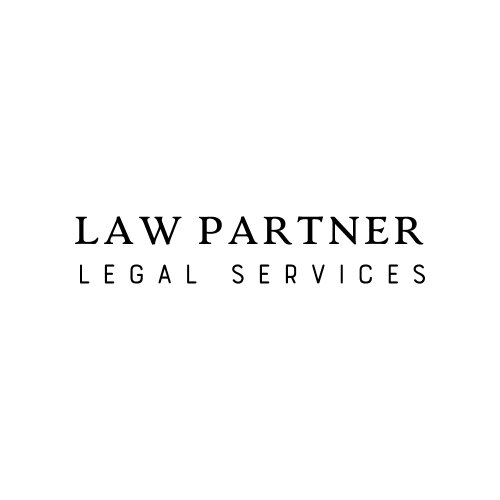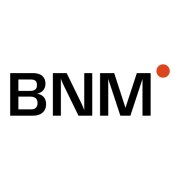Best Banking & Finance Lawyers in Republic of Lithuania
Share your needs with us, get contacted by law firms.
Free. Takes 2 min.
Or refine your search by selecting a city:
List of the best lawyers in Republic of Lithuania
About Banking & Finance Law in Republic of Lithuania
Banking and Finance Law in the Republic of Lithuania encompasses a broad spectrum of regulations and legal frameworks governing financial institutions, markets, and transactions. Lithuania's banking and financial sector has grown substantially since its accession to the European Union in 2004. The country operates under a mixture of local regulations and EU directives designed to ensure financial stability, protect consumers, and foster economic growth. Key regulatory bodies include the Bank of Lithuania (Lithuania's central bank) and the State Tax Inspectorate. These institutions are mainly responsible for overseeing banking operations, securities, insurance, and other financial services.
Why You May Need a Lawyer
Seeking legal advice in the field of banking and finance can be essential for several reasons:
- Compliance: Ensuring that your business meets all local and EU-specific regulations.
- Litigation: Handling disputes or legal conflicts involving financial transactions or banking operations.
- Contracts: Drafting or reviewing complex financial agreements, including loans, securities, and investment contracts.
- Regulatory Advice: Understanding new regulations and how they may affect your business practices.
- Investment: Safeguarding your financial interests whether you are an individual or institutional investor.
Local Laws Overview
Several important aspects of Lithuanian laws are particularly relevant to the field of banking and finance:
- Banking Act: This act outlines the legal framework for banking operations in Lithuania, including licensing, capital requirements, and governance.
- Consumer Credit Law: This law protects consumer rights in credit agreements, specifying rules for interest rates, disclosures, and contract terms.
- Anti-Money Laundering (AML): Lithuania follows stringent AML regulations as mandated by the EU to prevent financial crimes.
- Payment Services Directive (PSD2): This EU directive modernizes payment services, making them safer and more efficient, and is applicable in Lithuania.
- Securities Law: Regulates the issuance, trading, and clearing of securities to maintain market integrity and protect investors.
Frequently Asked Questions
What are the main regulatory bodies overseeing banking and finance in Lithuania?
The primary regulatory bodies include the Bank of Lithuania and the State Tax Inspectorate.
What is the legal framework for consumer credit in Lithuania?
The Consumer Credit Law governs consumer credit, ensuring transparency and fairness in lending practices.
What steps should I take to ensure compliance with AML regulations?
Implement a comprehensive AML policy that includes customer due diligence, monitoring transactions, and reporting suspicious activities.
Can foreign investors operate freely in Lithuania?
Yes, Lithuania provides a favorable environment for foreign investors, with various incentives and a straightforward regulatory framework.
How are disputes in banking and finance typically resolved?
Disputes are usually resolved through negotiations, mediation, or litigation in Lithuanian courts.
What role does the Bank of Lithuania play?
The Bank of Lithuania is the central regulatory authority responsible for supervising financial institutions, issuing monetary policy, and ensuring financial stability.
Are there any tax incentives for financial institutions in Lithuania?
Yes, Lithuania offers various tax incentives to attract and retain financial institutions, including favorable corporate tax rates and exemptions.
What are the penalties for non-compliance with banking regulations?
Penalties can range from fines to revocation of licenses, depending on the severity of the non-compliance.
How does Lithuania ensure the security of payment services?
Lithuania complies with the EU's Payment Services Directive (PSD2), which mandates strong customer authentication and secure communication.
Is it necessary to consult a lawyer for small banking transactions?
While not always necessary, consulting a lawyer can provide clarity and ensure that all legal aspects are covered, especially for complex or significant transactions.
Additional Resources
The following resources can be useful for anyone seeking more information or legal assistance in banking and finance in Lithuania:
- Bank of Lithuania
- State Tax Inspectorate
- Ministry of Finance of the Republic of Lithuania
- Lithuanian Bar Association
- European Central Bank (for EU-wide directives)
Next Steps
If you find yourself in need of legal assistance in banking and finance, consider the following steps:
- Identify the exact nature of your legal issue.
- Gather all relevant documents and information.
- Contact a qualified lawyer specializing in banking and finance law.
- Schedule a consultation to discuss your needs and potential legal strategies.
- Follow your lawyer's advice and keep abreast of any regulatory changes that may affect your situation.
By following these steps, you can ensure that your legal matters in the field of banking and finance are handled efficiently and effectively.
Lawzana helps you find the best lawyers and law firms in Republic of Lithuania through a curated and pre-screened list of qualified legal professionals. Our platform offers rankings and detailed profiles of attorneys and law firms, allowing you to compare based on practice areas, including Banking & Finance, experience, and client feedback.
Each profile includes a description of the firm's areas of practice, client reviews, team members and partners, year of establishment, spoken languages, office locations, contact information, social media presence, and any published articles or resources. Most firms on our platform speak English and are experienced in both local and international legal matters.
Get a quote from top-rated law firms in Republic of Lithuania — quickly, securely, and without unnecessary hassle.
Disclaimer:
The information provided on this page is for general informational purposes only and does not constitute legal advice. While we strive to ensure the accuracy and relevance of the content, legal information may change over time, and interpretations of the law can vary. You should always consult with a qualified legal professional for advice specific to your situation.
We disclaim all liability for actions taken or not taken based on the content of this page. If you believe any information is incorrect or outdated, please contact us, and we will review and update it where appropriate.
Browse banking & finance law firms by service in Republic of Lithuania
Republic of Lithuania Attorneys in related practice areas.
Browse banking & finance law firms by city in Republic of Lithuania
Refine your search by selecting a city.















